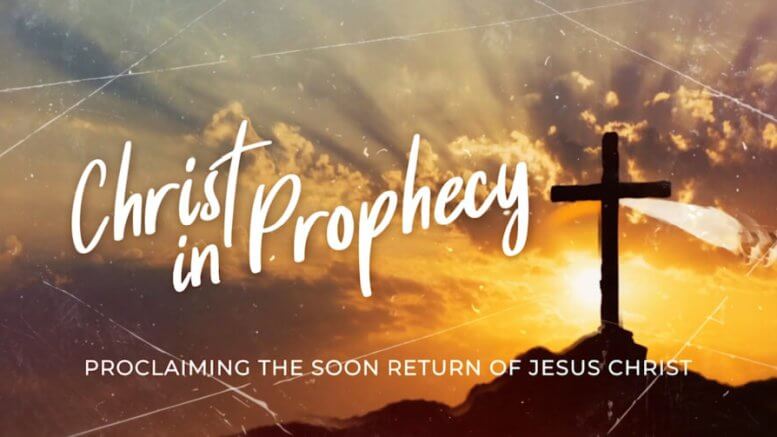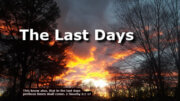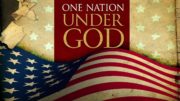We are concluding our series starting back in Part 1 exploring the fulfillment of nineteen Christmas prophecies that prove that Jesus Christ is indeed the long-awaited Messiah, and so we can place our faith and trust in Him as our Savior and Lord.
13. His Divine Name (Isaiah 7:14)
Nathan Jones: Isaiah 7:14 prophesies the Messiah’s divine name — Immanuel — meaning “God with us.”
14. Presentation of Gifts (Psalm 72:10-11)
Nathan Jones: Even gifts for the Messiah had been prophesied. Psalm 72:10-11 reveals, “The kings of Tarshish and of the isles will bring presents; the kings of Sheba and Seba will offer gifts. Yes, all kings shall fall down before Him; all nations shall serve Him.”
Now, this is a prophecy about the Messiah’s Millennial reign, but the fact that the Wise Men gave the baby Jesus gifts served as a type that points to the fact that He would be King of Kings and Lord of Lords, and that the nations would inevitably one day bring gifts to the Messiah.
Tim Moore: Even the Wise Men themselves served as a foreshadowing of a future fulfillment when all of the kings of the earth will fall before the Messiah and worship Him as He deserves.
15. Massacre of Children After His Birth (Jeremiah 31:15)
Tim Moore: While there’s so much that is positive about the nativity and the birth of Jesus Christ, there are some sad elements that were prophesied. Jeremiah 31:15 prophesied a massacre of children resulting in the wailing of women. “This is what the Lord says: ‘A voice is heard in Ramah, lamenting and bitter weeping. Rachel is weeping for her children; she refuses to be comforted for her children, because they are no more.’”
Once King Herod found out about this new king who had been born in Bethlehem, he perceived the baby as a threat to his own reign. Herod had two of his own sons murdered because he thought that they would threaten his control. And so, he ordered that all of the children two years and younger in the vicinity of Bethlehem be killed. But, Joseph was warned in a dream, and so he took Mary and Jesus and fled to Egypt.
16. His Escape to Egypt (Hosea 11:1)
Nathan Jones: Hosea 11:1 prophesied the Messiah also coming out of Egypt. “When Israel was a child, I loved him, and out of Egypt I called My son.” And so, the Messiah, even though He’s supposed to be Jewish, would come out of Egypt. How so? Because Jesus in His younger years had to flee to Egypt until King Herod died.
17. His Residence in Nazareth (Matthew 2:23)
Nathan Jones: After Egypt, the Messiah’s residence would be in Nazareth. Matthew 2:23 reads, “And he came and dwelt in a city called Nazareth, that it might be fulfilled which was spoken by the prophets, “He shall be called a Nazarene.”
Jesus’s life — you just can’t make this up! You can’t preplan to fulfill all of these prophecies, such as by bringing a king down to kill all of the babies, and then be forced to flee to Egypt, then move back and live all the way out into the sticks of Nazareth so that the Messiah could come from there. You just can’t make these things happen. And yet, Jesus fulfilled these prophecies exactly because that’s how the circumstances directed His life.
18. His Childhood Poverty (Isaiah 53:2)
Tim Moore: And speaking of Nazareth, later on, the muckety-mucks in Jerusalem couldn’t believe that anybody important could ever come from the region of Galilee. I liken it to somebody who would be called a hillbilly today. In Jesus’ day and age, the idea that someone could come from this little village of Nazareth was preposterous. And yet, Isaiah 53:2 also prophesied that the Messiah would grow up in poverty. “For He grew up before Him like a tender shoot, and like a root out of dry ground; He has no stately form or majesty that we would look at Him, nor an appearance that we would take pleasure in Him.”
The Bible prophesied that the Messiah would be poor and would come from a place of little or no account, having no money or good looks to attract people to Him. And yet, that is the wonderous beauty of God in that He chooses the things that are, in this world’s perception, foolish in order to confound the wise. God chooses the things that are poor to confound the rich.
Nathan Jones: The Jewish people, especially the scribes and Pharisees of that time, had studied the prophecies. They knew that the Messiah would come from a poor background, but they couldn’t accept the fact that He came out of poverty. They expected a king with all of His regalements to rescue them from the Romans.
19. His Spirit-filled Nature From Birth (Isaiah 11:2)
Nathan Jones: Jesus wasn’t interested in material riches, rather He was interested in spiritual riches. The nineteenth Christmas prophecy is Isaiah 11:2 which shows the fact that Jesus at His birth would be Spirit-filled. “The Spirit of the Lord shall rest upon Him, the Spirit of wisdom and understanding, the Spirit of counsel and might, the Spirit of knowledge and of the fear of the Lord.”
Jesus was born rich because He was rich in spiritual things. And, as Christians, we can be rich in spiritual things as well when we know Jesus as our Savior.
Tim Moore: I would submit the biblical story of Jesus and John the Baptist in their pre-birth state showed that they were already Spirit-filled. John the Baptist was filled with the Holy Spirit while he was still in his mother’s womb, which is why he knew to leap in the presence of Jesus Christ when the pregnant Mary visited her pregnant cousin. This also makes for a great argument for the personhood of the unborn.
Nathan Jones: The fulfillment of all nineteen of these Christmas prophecies proves that Jesus Christ is indeed the long-awaited Messiah, and so we can place our faith and trust in Him as our Savior and Lord.





